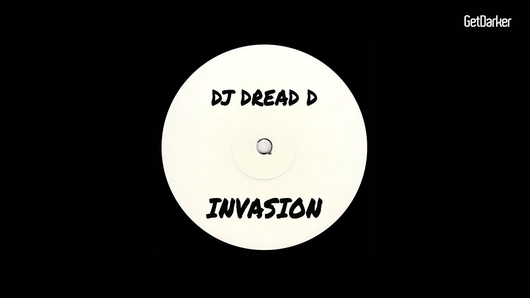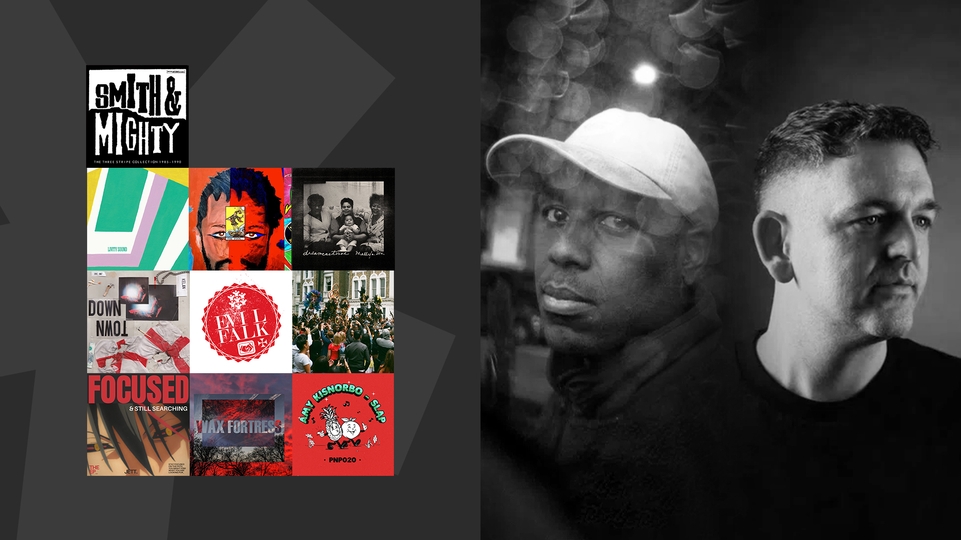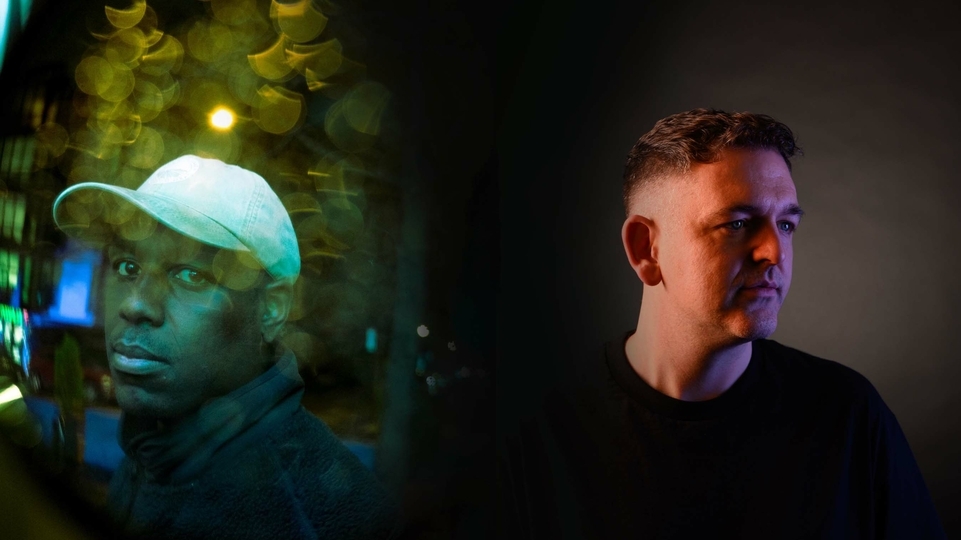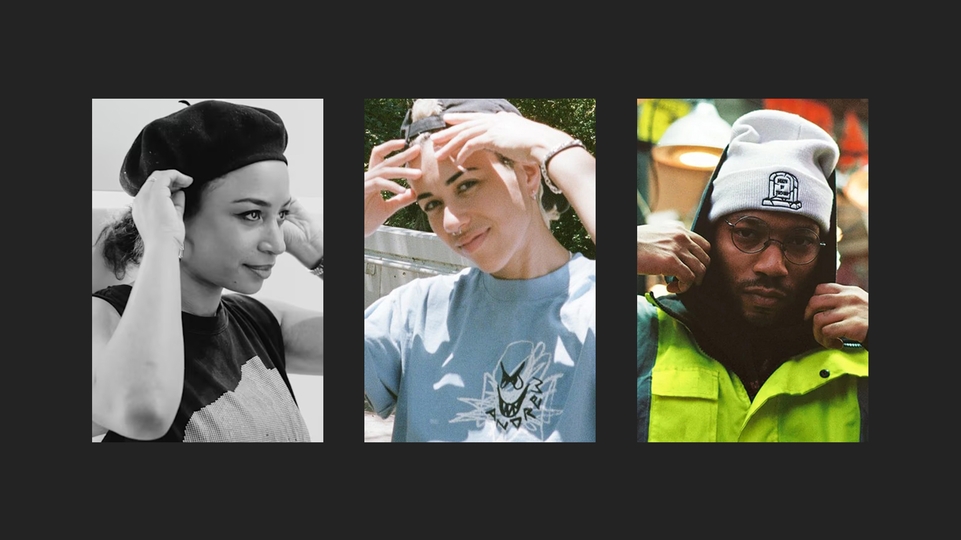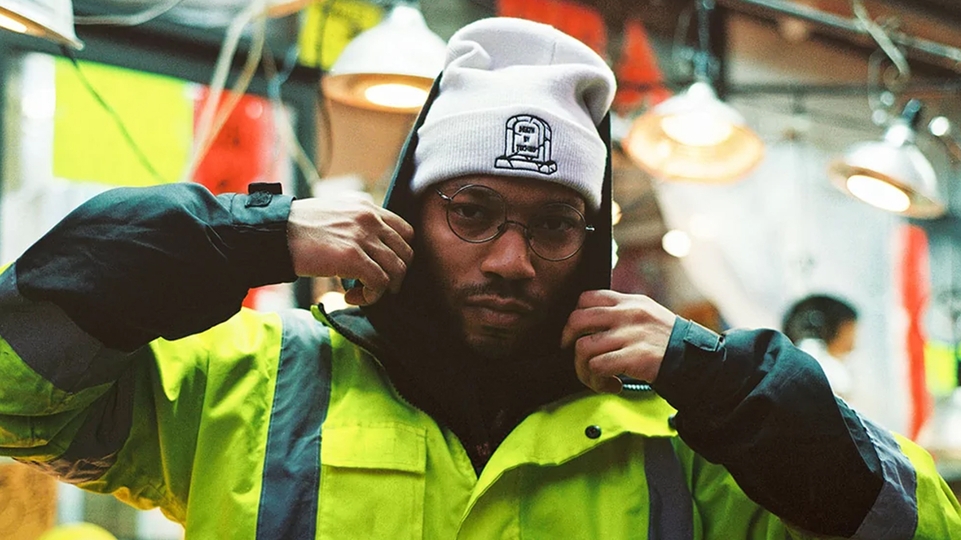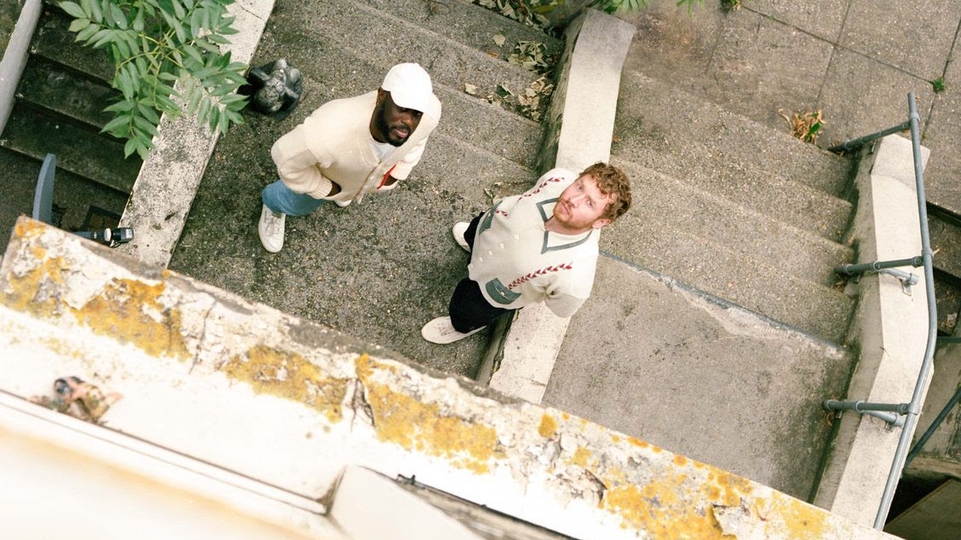
T.Williams: no limitations
Over the past two decades, West London DJ and producer T.Williams has worn many hats, from his roots in grime and jungle through to spells in garage and soulful melodic house. His recently released debut album, ‘Raves Of Future Past’, finds him freed from all limitations, and pays tribute to this wide-ranging career. Here, Ben Murphy speaks to him about writing songs versus bangers, the freedom of expression of the early 2000s era, and how he made his classic track ‘Heartbeat’ with Terri Walker
“That cross-section between a banger instrumental and a nicely crafted song was always something that I really enjoyed,” says T.Williams, reflecting on the kind of music that sparks his imagination. “People like to pick one or the other, but I’ve always enjoyed those things in equal measure.”
The West London DJ and producer born Tesfa Williams is equally adept at making both. For over 20 years he’s been releasing both hard-hitting club tracks and soul-inflected, vocal-driven gems, his music moving between multiple genres with ease. Many know him from his classic early 2010s releases on Local Action, which chimed with the anything-goes, bass-driven frequencies of the post-dubstep era. Then there’s his melodic, piano-laden house tracks and hook-laden songs for PMR, Strictly Rhythm and Melvo Baptiste’s The Remedy Project, and his heavier, acid-inflected collaborations with Julio Bashmore. As a DJ, he’s held a residency for Radio 1’s In New DJs We Trust, and played everywhere from Movement in Detroit and Bass Coast in Merritt, Canada to many venues across the UK.
Before all this, at the start of Williams’ musical career, he was making some of the earliest grime under the name Dread D for Jon E Cash’s Black Ops label and collective. It’s to this sound, and some of his earliest influences, that he’s returned on his debut album ‘Raves Of Future Past’, released earlier this month on Purple City. Over 12 tracks, Williams summons the raw energy and sub-low frequencies of his grime days, while also showing new sides of his production persona. ‘Step In 2’ has ominous square wave synth riffs, pirate radio patter and skippy garage beats, ‘Cheery Coke’ is a minimalist roller with thumping low-end, and ‘Climbing Purple’ mixes UK funky rhythms with the synth tension of gqom. Particularly good is ‘Love All You Squares’, a breakbeat grime hybrid that feels fresh and nostalgic all at once.
“Just before we all went into lockdown, I bought this Elektron Digitakt drum machine,” Williams tells DJ Mag via video call. “It had a step sequencer on it, which reminded me of a software program, Rebirth, which is what I used to use when I was doing grime. Obviously I got to get intimate with it during that lockdown period. So when I did that, I was like, ‘Okay’, and I pulled out the old Korg Triton keyboard as well. I was mucking around on an old grime synth and my new drum machine, and that was the hybrid that came out of that moment. It was so much fun to make, just jamming.”
The last five tracks showcase the artist’s great skill for crafting jungle/drum & bass. The eerie pads, ill bass and break chops of ‘She Loves!’ could collapse any sound system, ‘Set Trends’ is a rowdy d&b burner, and ‘Garvey Words’ — which takes a legendary roots reggae sample and replays its bassline with deadly deep subs over sliced and diced drums — pays tribute to his formative musical influences.
“I grew up in a Rastafarian household, obviously there was a lot of roots reggae playing, a lot of dub playing via my dad, my mum as well,” he says. “Burning Spear was played all the time. I just felt like I needed something on there that related back to the eight-year-old me, the kid that was joining the dots between my dad’s generation, the Windrush generation, and me being like first generation born here in the UK.”
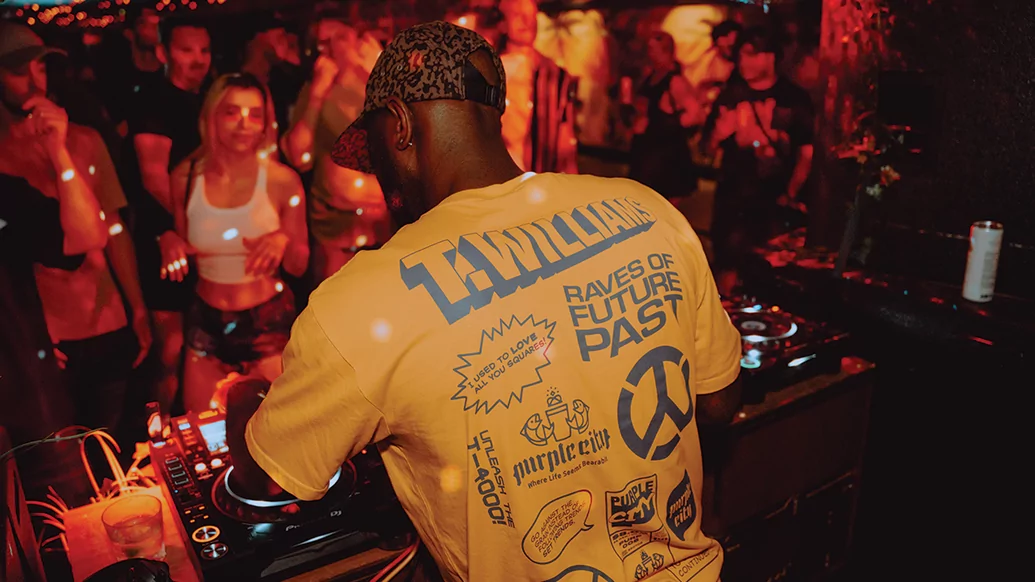
“There’s no limitations to what I can do now. I feel like that’s what this album did for me. It released all the limitations. I can make a 110 BPM house track, slow downtempo disco, whatever, a full-on jungle/drum & bass track. I’m confident doing everything in-between as well.”
Though he’s been making d&b tracks ever since he first started producing, Williams has never had the confidence to release them before. But during lockdown, with time to reflect, he went back through his record collection, and decided to make an album that would express some of his biggest inspirations. “I never felt like my jungle/drum & bass was technically good enough to present to the world, or even show anyone on a record label,” he says. “But now I’m 20 years deep, I’ve got technical knowledge, I’m a much better engineer than I was when I was 16. The album came as a reaction to having time, having space, having understanding, and saying to myself, ‘Okay, what is it you would like to say in an LP? How would you go about this? How would you talk about the music that’s influenced you from the past?’”
In the ’90s when he was starting to formulate his own music taste, Williams was hearing tracks from cousins and his elder siblings that caught his ear. It sounded like they had some connection to the Jamaican records he was hearing from his parents, but with a new, speedy rave element that got him excited. “Jungle was the first thing I got into, it was literally through people giving me tapes and stuff. Being from London, I was able to turn the radio on at eight, nine years old and scroll through it, and be like, ‘Oh, that’s the same thing that these lot are playing the tapes of and going to the raves of. Although I’m not old enough to be a part of it, I’m aware that this feels like the music that really resonates with me’. My shift was to electronic music because of jungle, which felt like the right fit between the music I grew up with, which was roots reggae, and the future, which was rave.”
In the latter part of the ’90s when UK garage started to percolate, Williams wasn’t interested. He thought it was too upbeat, lightweight, melodic, lacking the heft and mood of the music he was into. Eventually, a friend persuaded him to come to a local under-18s club event, Education In Dance, which would book garage heroes like EZ, Norris ‘Da Boss’ Windross and Matt ‘Jam’ Lamont. “I went one Friday, went in, and I can’t remember the name of the song, but I know it was on Pulse Recordings ’cause I’ve got it,” Williams says. “And this track was as dark as it comes. It was rave, it was jungle, it was garage, it was all of these things in one basket. That really turned me onto garage.”
He’d already been making his own tunes at home, and now set his sights on this more bass-heavy, minimalist form. Teaming up with the Black Ops collective and label run by Jon E Cash, he started to release tracks under the name Dread D, like the early grime of ‘Invasion’ and ‘Siege’, matching huge square wave bass, dramatic orchestral synth hits, and chattering beats that departed from the garage template. “Black Ops is that era just before the term grime was coined,” he says. “I feel like all of us were just trying to make dark garage, so that’s how my pathway into grime was. I didn’t have the equipment to make the polished clean stuff that was out there at the time, so hence grime — or sub-low, as it was called then.”
Free from musical rules, the Black Ops crew and others operating at the time were making beats for pirate radio and MCs, which coalesced into its own distinct sound. “It was a very special time,” Williams adds. “I spoke about this recently with friends, talking about how all these genres, what they have in common, is that freedom in the beginning. There isn’t any expectation. We were basically just servicing our mates, nobody but the pirate radio stations. In doing so, we knew that no one’s gonna turn their nose up at, ‘Oh, you didn’t make this in a studio, you made it at home, or you didn’t use a mixing desk to mix it down’. No one cared about the technicals, it was just, does it bang or does it not?”
In the ensuing years, Williams was getting more into house music, going to events with DJs like Gavin Peters and Wigman. He started to feel restricted by his grime moniker, and changed his artist name to T. Williams: “Dread D was me when I was a kid, no one has probably ever seen me with dreads, so I thought it was a fitting time to transition to a new name”.
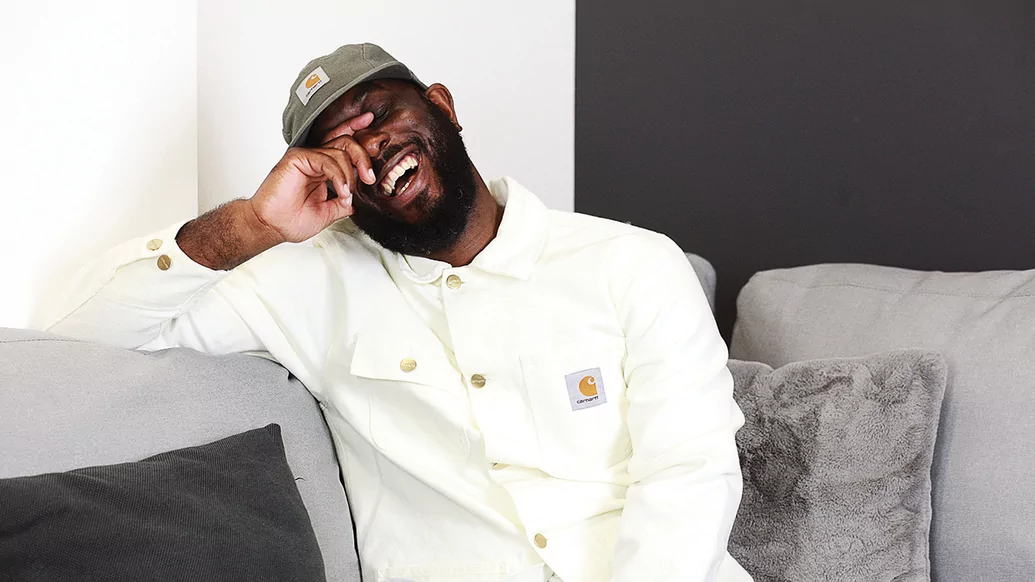
His T. Williams EPs released on Local Action from 2010 onwards showed a great versatility, with tracks ranging from the UK funky shuffle of ‘Afric’ to the acidic electro-funk of ‘Analog Tour’ — but it was one track in particular that would elevate the artist’s reputation. ‘Heartbeat’, a sinuous house tune with a bubbling melodic bassline and the beautiful vocals of Terri Walker, made a seismic impact on its release. Not only was it a memorable song, it had the rhythmic heft to command a dancefloor too, while remixes from Mosca and Paul Woolford made it appeal to various different scenes. Recently re-released with fresh mixes, it’s considered a classic today.
“My eldest brother Jeffrey happened to be a music manager, and he was managing Terri Walker,” Williams recalls of the track’s creation. “Because my brother also sings, I made a beat for him. We had the idea of a song, and that was the ‘Heartbeat’ instrumental. I can’t remember whether he was at Terri Walker’s house or she was at his house, but he was playing the beat. She was like, ‘Nah, this is mine! I’m gonna write a song to this.’ So she wrote the song, came to the studio, and laid it down. The level of excitement was insane. At the time in 2010, the post-dubstep scene hadn’t really written an actual song. It was like, ‘I’m gonna be the first one to step out of the basket to go ahead and create a song’. I’m super happy it’s had this life over the past decade plus.”
Signing to PMR Records, T. Williams produced more song-driven, vocal-led house through the decade, such as the addictive ‘Think Of You’ with Tendai, while later releases have included everything from the uplifting pianos of MJ Cole collaboration ‘Privilege’ on Williams’ own Today, Tomorrow Records to the crunchy drums and classic NYC feel of ‘Let’s Be For Real’ on Strictly Rhythm. Most recently, he’s made the mellow broken beat of ‘You Take Me High’, with Tendai delivering a lush Jill Scott-esque vocal, and the melodic, jazzy house of ‘Peace’ with another singer, Sio, both for The Remedy Project label. This musical direction, says Williams, springs from the long DJ sets he’s been playing at Shepherd’s Bush vinyl store Next Door Records.
“In those four or five hours, I get to play those ’90s vocal house tracks from New York, Chicago, you name it. I’ve been heavily influenced by these sets, which are not about a headline name, they’re for entertaining people who are digging in the crates. It’s like bringing my vinyl collection to life in a space. It’s been great that I’ve been able to explore those projects on The Remedy Project and Strictly Rhythm.”
Williams’ debut album ‘Raves Of Future Past’ feels very different to these, but is also testament to a wide-ranging career in which he’s made and played all kinds of dance music. Highly prolific, with over two decades of experience, the album proves he can make any style he wants. “There’s no limitations to what I can do now,” he says. “I feel like that’s what this album did for me. It released all the limitations. I can make a 110 BPM house track, slow downtempo disco, whatever, a full-on jungle/drum & bass track. I’m confident doing everything in-between as well.”
Though he’s just released his first LP, there could be two more albums before the end of the year, several club EPs, and the realisation of a long-held ambition. “2023 was a real creative burst in my life, I was doing lots of sessions — so expect lots of music and some really specific curated shows throughout the year,” Williams says. “The next stage is releasing an R&B track, that’s the next tick. I can tell you that I have loads of it sitting on my hard drive, with vocalists and all the rest of it. Watch this space, I’ve got some R&B coming!”

